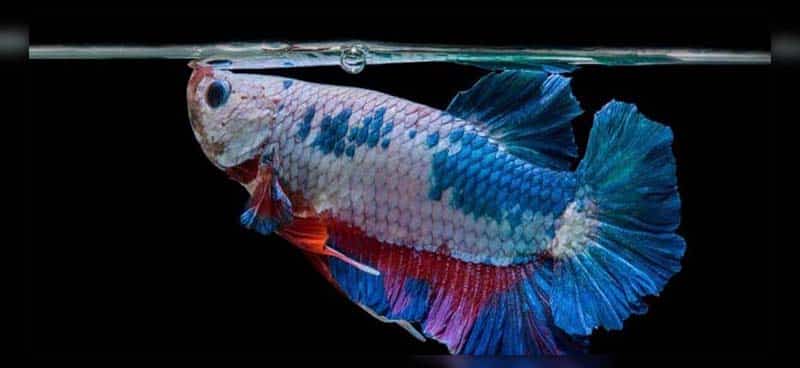Ever found yourself peering into your betta fish tank, wondering, “can betta fish see in the dark“. Curious if they can navigate their underwater world when the lights go out or if they’re comfortable in dim environments?
In this blog, we’ll unravel the mysteries behind betta fish vision in the dark and provide you with insights to ensure your finned friends thrive, day and night.
Do Betta Fish See in The Dark?
Betta fish can perceive their surroundings in complete darkness, but their vision is severely limited in those conditions. Absolute darkness not only impairs their eyesight, but it can also lead to heightened irritation for these fish.
While bettas possess horizontal streaks that allow them to sense nearby objects, they struggle to clearly see things in the dark. To support their well-being, it’s recommended to provide food during daylight hours or under appropriate aquarium lighting, as they face difficulty locating their food in darkness.

Betta Fish Night Vision
Unlike birds of prey with vision, betta fish have relatively weak eyesight. Their eyes work differently from humans; they possess monocular vision, meaning each eye sees a distinct image.
However, an intriguing aspect is their limited depth perception – the ability to gauge distance is a challenge for them. While there’s no such thing as a betta fish glow in the dark, their eyes do have unique adaptations.
Interestingly, betta fish’s simultaneous view of two images doesn’t enhance depth perception as one might expect. To compensate, they rely on pressure sensors along their sides to detect water pressure, aiding them in estimating proximity to objects.
Do Bettas Like Being in the Dark?
Betta fish don’t favor daylight darkness, but the story changes at night. Similar to humans, betta sleep in the dark, they prefer a dark environment to rest. Placing lights in their tanks during the night isn’t logical.
Imagine having a bright light in your face while trying to sleep – it’s unsettling. Bettas, similarly, appreciate darkness at night for uninterrupted sleep. Interestingly, their innate pressure sensing ability safeguards them from collisions in the dark.
Learn about: how do betta sleep
Source: True Aquarium
Does Betta Fish Like Dark Places?
Betta fish hail from tropical regions with moving waters. While they possess night vision, they lean towards dimmer surroundings due to their origin in murky waters with limited sunlight. Yet, it’s essential to note that they require at least ten hours of daily light exposure for their overall health and balance.
Conclusion
We’ve delved into the question of whether can betta fish see in the dark. While bettas have excellent vision during the day, their sight is limited in low-light conditions. Therefore, it’s crucial to provide optimal lighting conditions for your betta fish to promote healthy eyesight. We hope you found this article informative. Let us know your thoughts in the comments below.




